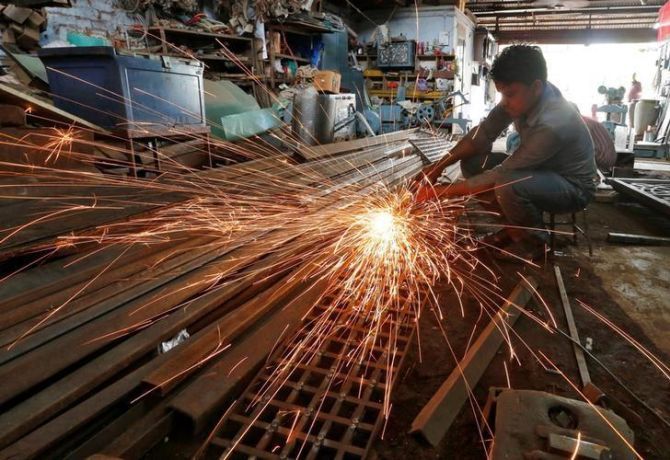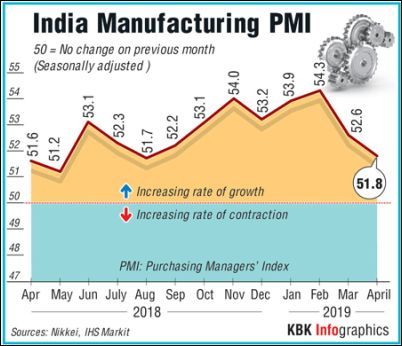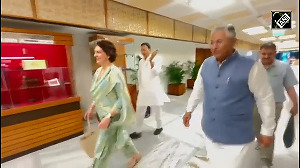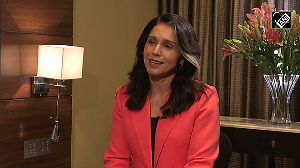Firms seem to have adopted a wait-and-see approach on their plans until public policies become clearer upon the formation of a government.

The country's manufacturing sector performance eased to an eight-month low in April as new business growth moderated, curbed by the elections and a challenging economic environment, a monthly survey showed on Thursday.
The Nikkei India Manufacturing Purchasing Managers' Index declined from 52.6 in March to 51.8 in April, reflecting weakest improvement in business conditions since August 2018.
This is the 21th consecutive month that the manufacturing PMI remained above the 50-point mark.
 In PMI parlance, a print above 50 means expansion, while a score below that denotes contraction.
In PMI parlance, a print above 50 means expansion, while a score below that denotes contraction.
April PMI data indicated that softer increase in new orders restricted growth of output, employment and business sentiment.
"Although remaining inside expansion territory, growth continued to soften and the fact that employment increased at the weakest pace for over a year suggests that producers are hardly gearing up for a rebound," said Pollyanna De Lima, principal economist at IHS Markit and author of the report.
When looking at reasons provided by surveyed companies for the slowdown, disruption arising from the elections was a key theme, Lima said, adding that "firms also seem to have adopted a wait-and-see approach on their plans until public policies become clearer upon the formation of a government".
The general election that began on April 11, is currently underway.
Votes will be counted on May 23.
On the prices front, input cost inflation eased to a 43-month low while the rate of charge inflation was marginal and below its long-run average.
"With price pressures in the manufacturing economy cooling and growth losing momentum, it's increasingly likely that the RBI may cut its official rate for a third successive time in June," Lima said.
The next meeting of RBI's Monetary Policy Committee is scheduled on June 3-6.
Photograph: Reuters











 © 2025
© 2025